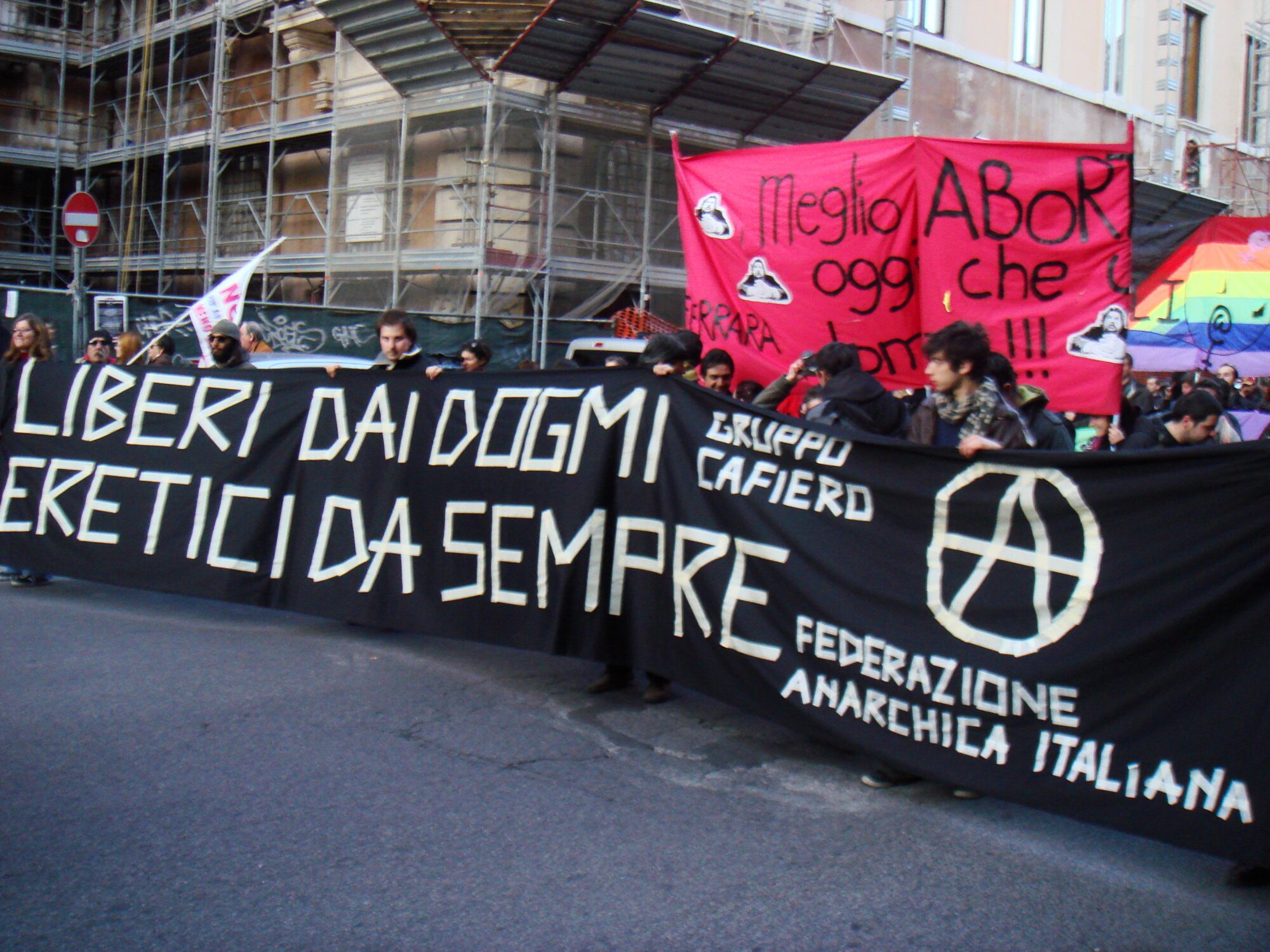
The Italian minister for foreign affairs, Antonio Tajani, said on Tuesday, January 31st, that from now on security will be raised in Italian embassies. This comes in response to ongoing attacks on Italian diplomatic representatives and Italian cultural institutions taking place across the world since November.
Several anarchist cells have declared responsibility for the attacks, claiming to act in solidarity with the imprisoned terrorist Alfredo Cospito, who is on a hunger strike. Cospito is responsible for shooting Roberto Adolfini, the CEO of a nuclear power company, and for a bomb attack on police cadet barracks. Last year, he was placed under the 41-bis prison regime, a highly restrictive confinement usually reserved for Mafia bosses who are deemed to pose a threat even from within prison.
A German anarchist grouping called the Black Bird Cell claimed responsibility on January 31st for burning the car of a diplomatic advisor in Italy’s Berlin embassy. Agenzia Nova reports the cell claimed it was acting in solidarity with action from South America and that they “wink at comrades in Barcelona.” The comment refers to the smashing of the Italian Barcelona consulate’s windows, accompanied by “freedom for cospito” being scrawled in graffiti—a reference to a string of attacks, involving Italian institutions in Argentina and Bolivia, and the attempted firebombing of the consulate in Porto Alegre, Brazil.
Last December, a Greek anarchist group called Cell of Revenge, ‘Carlo Giuliani,’—after an Italian anarchist who was shot while attacking Italian police—claimed responsibility for firebombing the car of Italian diplomatic advisor Susanna Schlein. Italian news outlet 7Colli wrote that “By a miracle, the fire did not involve the woman’s children, who were staying a few metres from the attack.”
Cospito’s hunger strike, in protest against his strict 41-bis confinement, has aroused political controversy in Italy. Anarchists have clashed with police in Rome, and have lobbed incendiary devices at police institutions. Additionally, threatening letters, some with envelopes containing bullets, have been sent to a prosecutor and newspaper editor in northern Italy threatening further violence.
Il terrorista #Cospito incontrava mafiosi per smontare il #41bis, i deputati #pd lo andavano a trovare. Ascoltate il mio intervento in Aula: la sinistra dica da che parte sta.
— Giovanni Donzelli (@Donzelli) January 31, 2023
👇https://t.co/JtQyrfEuPF
Speaking in the Italian parliament, Giovanni Donzelli, a deputy from Tuscany, reaffirmed strong support for the 41-bis measure, placing special emphasis on its use in fighting the mafia:
Mafiosi do not fear prison, because … in the end, for a mafioso, it is a social affirmation. It is almost a medal from a street fight, to demonstrate one’s opposition to the state… The mafiosi are terrified of 41-bis, because 41-bis is the tool that prevents the mafiosi from controlling their territory [from prison], it is a tool that makes a mafioso fear being taken over in his own clan, and a tool that makes a mafioso feel certain that the state has won.
Going further, Donzelli connected this to Caspito’s hunger strike:
There is a new way that the mafia is trying to make the state surrender on the 41-bis, there is a new character, an influencer who is trying to undermine this tool, he is the terrorist Cospito … I’m quoting today’s la Repubblica [a centre-left newspaper] in which they report Cospito’s words, who says he is not fighting for himself but to abolish the 41-bis for all terrorists and all mafia.
Concluding his speech, Donzelli cited several records which stated that Caspito had encountered key mafia figures while in prison, and that they had been recorded as expressing mutual support for one another. Turning then to left-wing deputies who went to express support for Caspito he finished, amidst shouting, “I want to know if these on the Left are on the side of the state, or the terrorists and the mafia!?!”
In the wake of a major mafia arrest in Italy, and amidst the Qatargate corruption scandal, which involves prominent left-wing Italian politicians, Donzelli appears to be tying the threads between crime and the Left.
